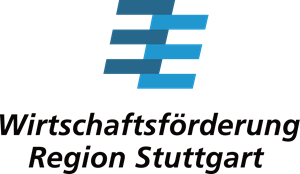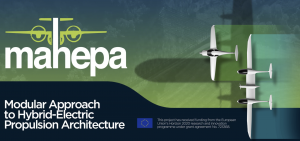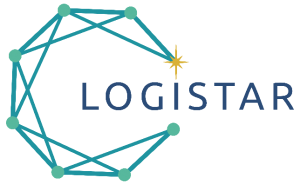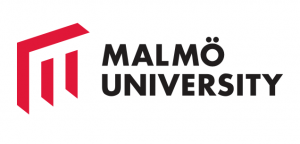Why is hydrogen a topic in Stuttgart Region?
Stuttgart Region is a high-density area in the center of Europe. Its 2.8 million inhabitants rely heavily on manufacturing for a living. And the core of the regional manufacturing cluster is the auto industry. We talk not only about Mercedes and Porsche as well known brands and innovative players of the industry. Equally important are the large suppliers: Bosch electrics, as well as many other large component manufacturers.
The region has hilly terrain. A few main axes carry much of the traffic. Most of the settlements are also located in these narrow river valleys. While Stuttgart is by far the largest city, other towns maintain their own centrality and catchment area. Traffic is intense, both passenger and freight.
As a result, Stuttgart Region has multiple reasons to focus on innovative traffic and transport solutions. Among them are:
- The traffic situation in a heavily industrialized hilly region.
- The need to decarbonize.
- The specific importance of the regional auto and mobility industry as a pacemaker of innovation.
The specific advantage of the fuel cell
Fuel cell technology is not the only possible solution to decarbonizing. First of all, it needs hydrogen as input. This must first be produced. As a result, energy efficiency of the fuel cell technology may not match that of electric cars. On the other hand, it has some specific advantages, which make the technology specifically fit for use in transport:
- Fuel cell technology needs no batteries. This saves weight and resources.
- Hydrogen is rather lightweight. A tank load allows for similar operation range as that of petrol or diesel tanks.
- Loading is quick and rather easy. From the viewpoint of the user, it can be compared to the fuelling of combustion engines.
Thus, fuel cells appear as a feasible answer for heavy vehicles or vehicles that carry heavy payloads, especially when they make many miles and have no time for battery loading.
The industry is ready to deliver mid-size fuel cell trucks from next year. It will still produce these trucks in rather small batches, but they are now based upon well-tried components and can no longer considered as experimental. Larger trucks will likely follow soon.
The current demand for fuel cell vehicles
This is the point when the “early adopters” get interested: People with an affinity to technical progress. They want to be part of the ongoing developments. Just as logistics companies in Stuttgart Region bought the first trucks at the end of the 19th century, when employing a horse cart still was the economically superior alternative. But these companies had all the necessary experience to go for the new technology in big scale when its time was ready.
Then there are companies with a specific policy to be environmentally friendly. They can document their commitment by employing innovative transport technology early on.
Last not least there is an opportunity to start fleet conversion with public bus companies and municipal utility services. These fleets are quite big and allow the integration of first fuel cell trucks. Orders from public services can help to create a critical mass for the production of components. The result is a surge in reliability and a sharp drop in prices. In addition, these public fleet owners run their vehicles locally. They do not depend upon a national infrastructure network.
As a result, more and more regional municipalities, committed ecologists, and early adopters opt for fuel cell technology. Apparently, this will lead to the build-up of significant hydrogen fleets in the coming years.
The strategy of Stuttgart Region
Stuttgart Region supports hydrogen filling stations. So far, the whole region of 179 municipalities has just a handful of these stations. Certainly not enough for general commercial use of fuel cell technology. However, with one or two additional stations in strategic locations, a significant share of regional freight transport can already find sufficient opportunities.
Therefore, Stuttgart Region promotes using the new filling stations in several ways. For a start, negotiations are well under way for an additional station right in the middle of the industrial axis along the Neckar river valley that cuts through the region. There, right on the outskirts of Stuttgart, is a lot of industry with intense regional transport among the industrial logistics chains. This includes logistics companies as well as basic industry, but there also is high-volume delivery traffic to and from the regional wholesale food market. Available mid-size trucks make many of these deliveries.
Furthermore, the region works towards a pipeline to transport hydrogen into the main industrial axis. This means availability for the whole industry, beyond the transport sector. And Stuttgart Region even supports the development of hydrogen powered aircraft at Stuttgart airport. But that is beyond the scope of this article.

Martin Brandt
Editor of the EU Regional Review
See also

Stuttgart Region’s position on hydrogen
Interview with Dr. Walter Rogg, head of the regional economic development corporation WRS Sehr geehrter Herr Dr. Rogg,With combustion engines on the way out, why
Share this article in your social media
Although we ensured to have up-to-date and accurate information, the publisher OPEN ENLoCC, nor the editor and the author, are not liable for errors and omissions. The publisher and the editor did not test products or services described and their inclusion does not imply any form of endorsement. By accepting advertisements in this publication, the publisher does not warrant their accuracy, nor accept responsibility for their contents. The publisher welcomes unsolicited manuscripts and illustrations but can accept no liability for their safe return. Reproduction (in whole or in part) of any text, photograph or illustration contained in this publication without the written permission of the publisher is strictly prohibited.
© 2022 OPEN ENLoCC All rights reserved.
 The publication of the European Review of Regional Logistics is supported by a grant of Wirtschaftsförderung Region Stuttgart GmbH (WRS).
The publication of the European Review of Regional Logistics is supported by a grant of Wirtschaftsförderung Region Stuttgart GmbH (WRS).
European regional review, Issue 2022/1
Other articles in this issue

Stuttgart Region’s position on hydrogen
Interview with Dr. Walter Rogg, head of the regional economic development corporation WRS Sehr geehrter Herr Dr. Rogg,With combustion engines on the way out, why
ST4W: Data flows for smart waterways
The ST4W (Smart Track for Waterways) project is supported by the INTERREG NWE programme of the European Union. It aims at promoting and increasing the
SMART-CORRIDORS project
Smart Supply Chain and Intelligent Intermodal Corridor Management for the China-Europe land-sea express line.” Recent research and business practice pinpoint that the integration of new
Promoting Hydrogen in Valencia
On 13 October 2021, the “H2VLC Valencia Hydrogen Valley” project was presented at the Valencia City Council headquarters, with the participation of more than 40

MAHEPA: Towards environmentally friendly hybrid-electric short haul air transportation
The Challenge The future competitiveness of the aviation sector largely depends on its environmental footprint. With the aviation industry responsible for 2 % of all

LOGISTAR – transport operations by horizontal collaboration, relying on real-time data
The LOGISTAR objective is to allow effective planning and optimizing of transport operations in the supply chain by taking advantage of horizontal collaboration, relying on
Hydrogen for transport in Stuttgart Region
Why is hydrogen a topic in Stuttgart Region? Stuttgart Region is a high-density area in the center of Europe. Its 2.8 million inhabitants rely heavily

FEDeRATED: a viable network of platforms for data sharing in freight transport and logistics
On 24th of November 2021 the Mid Term Review meeting of the FEDeRATED project was held at the Codognotto headquarters in Salgareda (Italy). The project

A relational business model of e-logistics facilities
“How come logistics operators’ return on investments is so low despite that warehouse operations are very cost efficient?”, is a strategic question that I and
19th European Transport Congress of the EPTS Foundation e. V. held in Maribor
On 7 and 8 October 2021, the University of Maribor hosted the international scientific congress “European Green Deal – Challenges and Solutions for Mobility and

Stuttgart Region’s position on hydrogen
Interview with Dr. Walter Rogg, head of the regional economic development corporation WRS Sehr geehrter Herr Dr. Rogg,With combustion engines on the way out, why
ST4W: Data flows for smart waterways
The ST4W (Smart Track for Waterways) project is supported by the INTERREG NWE programme of the European Union. It aims at promoting and increasing the
SMART-CORRIDORS project
Smart Supply Chain and Intelligent Intermodal Corridor Management for the China-Europe land-sea express line.” Recent research and business practice pinpoint that the integration of new
Promoting Hydrogen in Valencia
On 13 October 2021, the “H2VLC Valencia Hydrogen Valley” project was presented at the Valencia City Council headquarters, with the participation of more than 40

MAHEPA: Towards environmentally friendly hybrid-electric short haul air transportation
The Challenge The future competitiveness of the aviation sector largely depends on its environmental footprint. With the aviation industry responsible for 2 % of all

LOGISTAR – transport operations by horizontal collaboration, relying on real-time data
The LOGISTAR objective is to allow effective planning and optimizing of transport operations in the supply chain by taking advantage of horizontal collaboration, relying on
Hydrogen for transport in Stuttgart Region
Why is hydrogen a topic in Stuttgart Region? Stuttgart Region is a high-density area in the center of Europe. Its 2.8 million inhabitants rely heavily

FEDeRATED: a viable network of platforms for data sharing in freight transport and logistics
On 24th of November 2021 the Mid Term Review meeting of the FEDeRATED project was held at the Codognotto headquarters in Salgareda (Italy). The project

A relational business model of e-logistics facilities
“How come logistics operators’ return on investments is so low despite that warehouse operations are very cost efficient?”, is a strategic question that I and
19th European Transport Congress of the EPTS Foundation e. V. held in Maribor
On 7 and 8 October 2021, the University of Maribor hosted the international scientific congress “European Green Deal – Challenges and Solutions for Mobility and